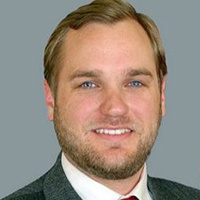Raiford DUI-DWI Lawyer, Florida
Sponsored Law Firm
-
 x
x

Click For More Info:
-
Law Office of Mark S. Guralnick
55 Madison Avenue 4th Floor Morristown, NJ 07960» view mapCriminal Defense Law Dedicated. Fearless. Successful.
Mark S. Guralnick and his legal team have helped clients throughout the USA and across the world by applying unparalleled dedication and hard work to each case.
800-399-8371
Bryan Eric Neal
✓ VERIFIEDIf you or a loved one has been arrested, or is being investigated for a criminal charge, having a lawyer represent you AS SOON AS POSSIBLE is one of t... (more)
Juan Carlos Calama
✓ VERIFIEDJuan was born in Miami, Florida to parents that fled from Cuba in the late 1950s from the tyrannical Castro regime. A native of Miami, Juan atten... (more)
Michael Rainka
✓ VERIFIEDMichael is a dedicated Jacksonville Criminal Defense Attorney and Florida DUI Attorney who approaches every case with the utmost skill and effort. Mic... (more)
Eugene Bullard Nichols
FREE CONSULTATION
CONTACTFREE CONSULTATION
CONTACT Mark Guralnick Morristown, NJ
Mark Guralnick Morristown, NJ AboutLaw Office of Mark S. Guralnick
AboutLaw Office of Mark S. Guralnick Practice AreasExpertise
Practice AreasExpertise



